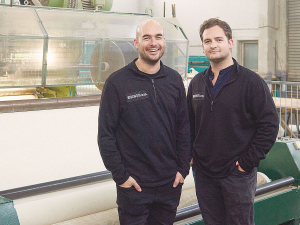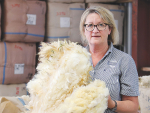The company, owned and run by the Hansen family, has its origins in 1890s Gisborne when William Henry Smith set up the area’s first wool scour and formed W H Smith Ltd.
The company has not been without its challenges, between two world wars, low strong wool prices and the Covid-19 pandemic. It has weathered its fair share of storms – as well as going through multiple name changes along the way.
During the pandemic, the company turned towards using wool to engineer a new fibre – Wisewool. The product is engineered by using the wool from farmer suppliers in Tairawhiti, Gisborne, to intertwine wool fibres together to make small buds and blankets.
Chief executive Henry Hansen says the purchase of the Waikato plant is well-timed for the company.
“We are planning a large new factory and new machinery for our company base in Gisborne. However, that project is realistically two to three years away,” he told Rural News.
“The Te Poi plant will enable Wisewool to immediately start supplying our ingredient products to the New Zealand furniture market and affiliated industries, satisfying the growing demand for our new products,” Hansen says.
He adds that the market appears ready to start replacing synthetic ingredient products with wool products.
Harry Urquhart-Hay, who manages the company’s sales and marketing, says the demand for the product is bigger than anticipated.
“The demand for wool seems to be growing by the month,” he told Rural News. He believes the demand continues to increase, particularly within the last year.
Urquhart-Hay says large businesses like Bremworth have helped to fuel the growth by getting the word out about wool and its benefits.
“I think people are realising the damage synthetics and plastic does to the planet,” he says. “Returning to natural fibres is making more and more sense in consumer eyes.”



















